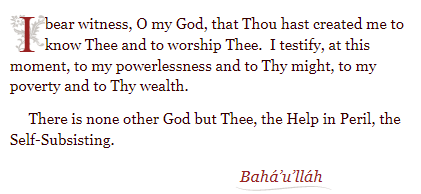“1. The one God. (a) theos is the most frequent designation of God in the NT. Belief in the one, only and unique God (Matt. 23:9, Rom. 3:30; 1 Cor. 8:4,6; Gal. 3:20; 1 Tim. 2:5; Jas. 2:19) is an established part of the Christian tradition. Jesus himself made the fundamental confession of Jud. his own and expressly quoted the Shema (Deut. 6:4-5; see Mk. 12:29-30; cf. Matt. 22:37; Lk. 10:27). This guaranteed continuity between the old and the new covenants. The God whom Christians worship is the God of the fathers (Acts 3:13; 5:30; 22:14), the God of Abraham, Isaac and Jacob (Acts 3:13; 7:32; cf. Matt. 22:32; Mk. 12:26; Lk. 20:37), the God of Israel (Matt. 15:31; Lk. 1:68; Acts 13:17), and the God of Jesus Christ (2 Cor. 1:3; Eph. 1:3; 1 Pet. 1:3).
(
New International Dictionary of New Testament Theology, Abridged Edition, p. 244)
I carried this around with me for decades
@Pancho Frijoles. I’ve posted it here and on many other forums.
I’ll expand on it using the same source, which is something that I haven’t done here and don’t recall doing on any other forum. [If (a) doesn’t interest them then (b) and (c) aren’t going to - even so, witness isn’t useless.*]
“(b) Confession of the one God appears in Eph. 4:6 in an expanded form (‘one God and Father of all, who is over all and through all and in all’), which glorifies the omnipresence of the rule of God. …”
(Ibid.)
(c) The one God is the living and only true God (Rom. 3:30; Gal. 3:20; 1 Thess. 1:9; 1 Tim. 1:17; 2:5; Jude 25; cf. Jn. 17:3). He is the God whom the heathen do not know (1 Thess. 4:5). It is true that Paul acknowledges the existence of ‘so-called’ gods, who have authority as demonic powers over the heathen, but for Christians there is only one God (1 Cor. 8:5-6). …
This one God is called ‘our God’ (Acts 2:39; 2 Pet. 1:1; Rev. 4:11; 7:12; 19:5). The individual believer, like Paul, can speak personally of him as his or her God (Rom. 1:8; 2 Cor. 12:21; Phil. 1:3; 4:19; Phlm. 4). Belief in the one God involves turning away from all heathen ways. Therefore in missionary preaching testimony to God is linked with a strggle against the worship of false gods (Acts 14:15; 17:24-25; 19:26).”
(Ibid., pp. 244,245)
* Have you ever looked closely at a Torah scroll? If you have, you may have noticed something unusual; there are two letters printed larger than all of the other Hebrew letters in the Shema.
eid is the Hebrew word for “witness“.
“Why are the final letters of the first and last words of the Shema larger than all the others in the Torah scroll? … When we recite the Shema, we attest to His primacy. This reflects the words of Isaiah (43:10), ‘You are my witnesses ...’”
A Jewish tradition.



